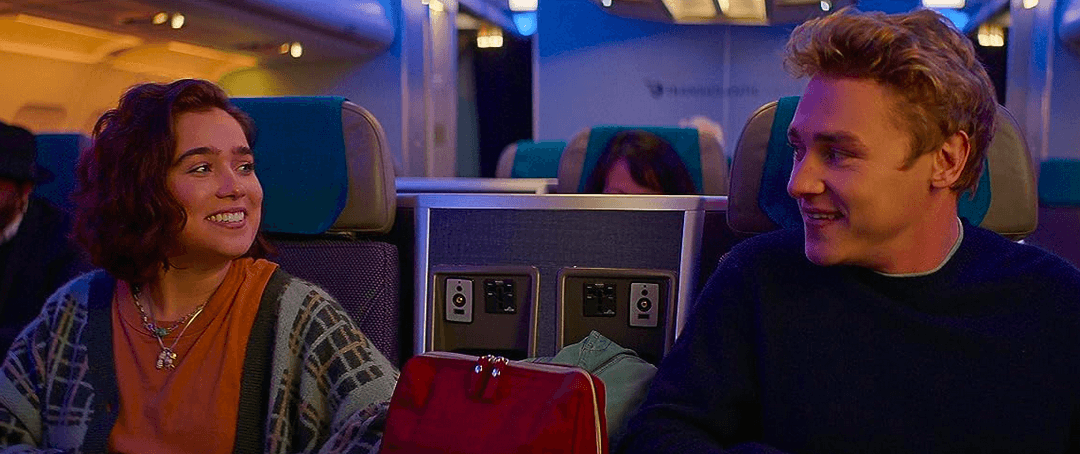How does love happen? How do, say, two bookstore owners who hate each other (“You’ve Got Mail”) fall in love? How does a famous American actress fall for a non-famous British bookstore owner (“Notting Hill”) after a chance encounter?
‘Love at First Sight’: Is It Fate or Just a Numbers Game?
The premise of love at first sight isn’t new. This film’s innovation is the running commentary of statistics and probability of love happening.

Hadley Sullivan (Haley Lu Richardson) and Oliver Jones (Ben Hardy) in "Love at First Sight." Rob Baker Ashton/Netflix
Mark Jackson is the senior film critic for The Epoch Times and a Rotten Tomatoes-approved critic. Mark earned a bachelor's degree in philosophy from Williams College, followed by classical theater conservatory training, and has 20 years' experience as a New York professional actor. He narrated The Epoch Times audiobook "How the Specter of Communism Is Ruling Our World," available on iTunes, Audible, and YouTube. Mark is featured in the book "How to Be a Film Critic in Five Easy Lessons" by Christopher K. Brooks. In addition to films, he enjoys Harley-Davidsons, rock-climbing, qigong, martial arts, and human rights activism.
Author’s Selected Articles





